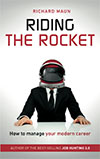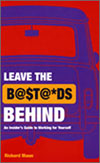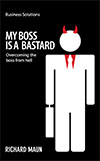better business blog
Tips and stories to add value to you and your organisation

Sleep!
Mental health and well-being is increasingly seen as a key constituent of workplace productivity and rightly so.
Buying a flash high-rise desk, installing a pool table and seting up the drinks machine to vend quality green tea (does such a thing even exist?) are all good for morale.
However, these tangible elements to our day can overlook one of the most fundamental parts of our lives – are we getting enough sleep to be truly fit for work?
Research has suggested that drowsiness when driving has the same effect on our mind as if we had alcohol in our system. None of us would drink and drive, but how many of us yawn and drive?
When was the last time an appraisal question asked if we get enough sleep?
When was the last time our manager looked into our tired red eyes and, instead of giving us more work to do, simply invited us to go home and get an early night?
Interestingly broken sleep can be beneficial, in the way that 18th Century sleep patterns were helpful. The good and the great would have an evening nap, then go out for dinner around 10pm and finally have more sleep after 2am.
This seems odd to us, who might eat at 6pm and go for one long sleep at 10pm, but the first half hour of sleep is when we have REM sleep. The brain does a lot of filing away at this time and sorts and processes memories from the day. Two sleeps can give us two lots of REM sleep and the rest is often just resting our muscles.
We all know what sleep patterns work for us and yet how often do we push the pace and rob ourselves of vital rest, only to stagger into work the next day with bleary eyes?
Over many years as a business coach I’ve found that lack of sleep is a real issue for many clients and adds to their daily stress load. I often offer them three options to support better nights:
1. Make a list of things to do tomorrow. Trying to hold everything in our conscious mind tends to promote wakefulness. We can write it down and let our brains switch off.
2. Make a plan. If we are fretting about a project we can flip open our diary and break the work into digestible chunks. This reduces any scare we may have that we can’t cope and so we tend to relax more.
3. Talk to someone. Many people feel that they have to shoulder their worries on their own. As the old adage has it …a problem shared is a problem halved. There is no need to be lonely and isolated and there is no shame in getting support. We all have tough times in our life and reaching out to a friend, coach or therapist is what grown ups do!
So, this week – go to bed! And if your week is crammed then I suggest that you make Wednesday a catch-up night to replace any lost hours and provide a platform for a successful end of week.
I would write more, but all this talk of sleep has made my eyelids droop. Sweet dreams!
Next week: It’s Ok To Feel Scared
e-publishing
Click icon for details


recent posts
browse archive
books
Click cover to view details on Amazon
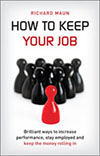
How to Keep Your Job
Brilliant ways to increase performance, stay employed and keep the money rolling in
Published 2011 Marshall Cavendish
208pp
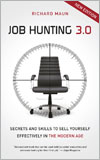
Job Hunting 3.0
Secrets and skills to sell yourself effectively in the Modern Age
Published 2010 Marshall Cavendish
260pp

 RSS
RSS